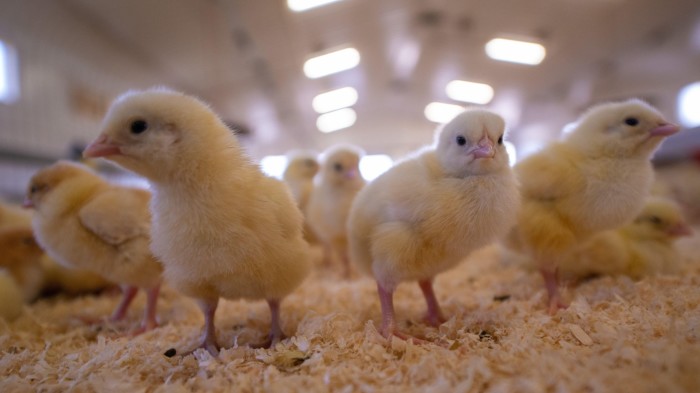Stay informed with free updates
Simply sign up to the Agriculture myFT Digest — delivered directly to your inbox.
Plans for a “megafarm” in Norfolk have been rejected by councillors concerned about its climate impact, in a test of whether a court ruling over oil and gas projects should be applied to the food industry.
Cranswick, a FTSE 250 listed company, has for three years sought to secure approval for construction of 14 barns for 14,000 pigs and 20 chicken sheds for 714,000 birds at the site near the villages of Methwold and Feltwell.
But on Thursday planning officers at King’s Lynn and West Norfolk borough council came out against the scheme, citing a landmark Supreme Court ruling issued last year known as “Finch”.
Councillors then voted unanimously to reject Cranswick’s planning proposals at lunchtime on Thursday.
The Finch ruling, based on a small oil project in Surrey, found that the climate impact of burning fossil fuels must be considered by regulators when assessing drilling sites.
Environmentalists have hoped the broad principle of corporate responsibility underpinning the ruling could be applied to other polluting industries but this has yet to be fully tested.
Application of the Finch standard has been largely confined to the oil and gas industry. But the council’s planning officers said the public benefits of the farming development were “outweighed” by its potential environmental impact.
Not only did the site lie in proximity to a number of protected sites but it would also produce greenhouse gases linked to the disposal of pig manure, they said.
“The landmark Finch decision requires an assessment is submitted and consideration is given to the downstream greenhouse gas emissions. Insufficient environmental information has been submitted to date and as such there is a legal risk to the council,” the planning officers’ recommendation said.
Cranswick said the company would take time to review the decision and consider its options. “We are incredibly disappointed by today’s decision. This is a bad day for the sustainable production of British meat,” it said.
Government lawyers in a High Court case last month warned against a “misapplication” of Finch beyond its relevance to a specific type of risk assessment for oil and gas.
The Finch judgment anticipated that in other industries, such as steel manufacture, it might be harder to prove that a project had a causal link to emissions linked to how a product is used.
Cranswick had argued the project would help support Britain’s self-sufficiency in pork and chicken production amid escalating international tensions.
It argued that the proposals to redevelop two existing farms would provide additional capacity to meet its commitment to reduce the number of chickens housed in each unit by 20 per cent.
Campaigners from Feedback Global and Sustain had warned that the project could increase emissions in the borough by 6 per cent.
Legal advisers for the two groups had argued that councils should consider the “direct and indirect climate impacts of industrial livestock units” when deciding on factory farm planning applications, describing the Cranswick site as a “test case” for similar applications.
Lily O’Mara of Sustain said on Thursday: “Local authorities are waking up to the reality of industrial farming . . . both economically and environmentally.”
Terry Jermy, the Labour MP for South-west Norfolk, argued against the project at Thursday’s hearing because it could contribute to “the climate crisis”.
